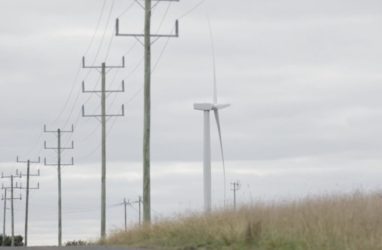Feed aggregator
NZ Market: NZU price finishes week higher, as market mixed about upcoming ETS auction result
Japanese trio commissioned to conduct CCS study in Tokyo metropolitan area
Respondents describe NZ govt’s Emissions Reduction Plan as high risk, low ambition
UN pact reintroduces key fossil fuel transition language after backlash
Gina Rinehart and Andrew Forrest. Two billionaires, two polar opposites on renewables
The post Gina Rinehart and Andrew Forrest. Two billionaires, two polar opposites on renewables appeared first on RenewEconomy.
Energy Insiders Podcast: Should networks be more than poles and wires?
The post Energy Insiders Podcast: Should networks be more than poles and wires? appeared first on RenewEconomy.
Wondering how to get from Brisbane to Melbourne without wrecking the climate? Our transport choices make a huge difference
Colony of invasive red dwarf honeybee found for first time in Europe
Discovery of Apis florea in Malta raises fears of devastating impact on native bee populations
The red dwarf honeybee has established a colony in Europe for the first time, scientists have found.
The bee, Apis florea, is native to Asia and its discovery has raised alarm among local beekeepers and conservationists, who fear the potentially devastating impact on native bee populations.
Continue reading...Taiwan emitters to pay carbon levy from 2026, exact rates to be determined around October
Fortescue wind and battery project near regional airfield gets all-clear from council
The post Fortescue wind and battery project near regional airfield gets all-clear from council appeared first on RenewEconomy.
Heat is on Queensland LNP to show its hand on climate and renewables
The post Heat is on Queensland LNP to show its hand on climate and renewables appeared first on RenewEconomy.
Households will produce more energy than they consume by 2040, and AEMO is paying attention
The post Households will produce more energy than they consume by 2040, and AEMO is paying attention appeared first on RenewEconomy.
Here come the batteries: Six new big battery projects in line for capacity payments in W.A. grid
The post Here come the batteries: Six new big battery projects in line for capacity payments in W.A. grid appeared first on RenewEconomy.
Warm and windy end to winter in NSW and Queensland with hot spring weather to follow
It’s expected to reach 29C in Sydney’s CBD on Friday and be even hotter in the west while Brisbane’s temperature is forecast to reach mid-30s over the weekend
- Follow our Australia news live blog for latest updates
- Get our breaking news email, free app or daily news podcast
Parts of Australia are bracing for a warm and windy end to winter, continuing a trend that is almost certain to make this month the country’s hottest August on record.
Hot conditions are forecast for Sydney on Friday with a maximum temperature of 29C in the CBD and higher in the city’s west. Temperatures in the mid-20s are forecast for the weekend.
Continue reading...Will sustainable aviation fuels take off?
US ag tech firm announces $10 mln Series A raise
WCI Markets: Post-auction relief rally extends in CCAs
Belize poised for $31 mln World Bank deal to include blue carbon
South Australia to enshrine 100 pct net renewable target in law as BHP looks to double smelting capacity
The post South Australia to enshrine 100 pct net renewable target in law as BHP looks to double smelting capacity appeared first on RenewEconomy.
Millions swelter as central and eastern US placed under excessive heat watch
Meteorologists predict scorching temperatures for the weekend before weather cools just in time for Labor Day
Millions of Americans will continue to swelter as Labor Day weekend approaches, with much of the country under some kind of excessive heat watch.
The brutal heatwave the US midwest suffered earlier this week has spread to the eastern half of the country, with more than 20 million people under some kind of a heat alert.
Continue reading...









